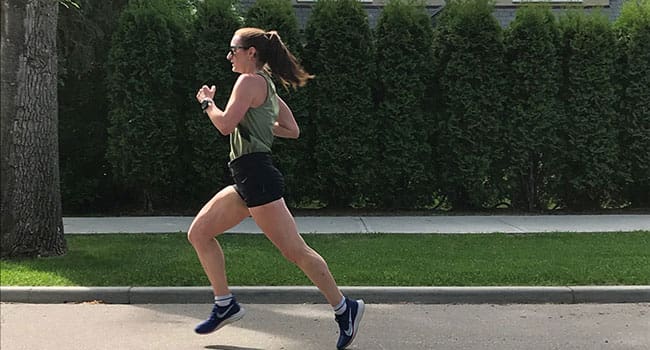Women varsity athletes who flourish during the season invest heavily in their mental health in the off-season, according to a University of Alberta study aimed at creating tools to help athletes maintain a healthy mental outlook as they navigate the ebbs and flows of a school year.
“Athletes do struggle with mental illness and we don’t really know the rate at which it happens, but most athletes, most of the time, aren’t experiencing a mental illness,” said Kurtis Pankow, a PhD candidate in the Faculty of Kinesiology, Sport, and Recreation’s renowned sports psychology group. “What we want to ensure is that whether or not they’re struggling with mental illness they continue to have a positive sport experience.”
Pankow’s team surveyed female student athletes to identify those whose mental health, both overall and in the sport context, was flourishing. From there, data were generated through individual semi-structured interviews before and after the season, and weekly written diaries during the season.
The researchers found that participants who had good mental health fell into three overarching approaches to mental health that coincided with the three different stages of the season.
In the preseason, the athletes interviewed actively tried to build their mental health.
FROM THE ARCHIVES: Tackling mental health issues in athletes by Ken Reed
“They made time for things they wouldn’t have time for in season, like hanging out with friends and building a non-sports social network,” said Pankow.
The student-athletes were also good at planning out their schedules to make time not only for homework, but also for friends and family.
“It seems they built their capacity in the preseason and prepared for the additional demand that the sports season put on them,” said Pankow.
And similar to how they build up their bodies in advance of the season and then just try to maintain during the year, the athletes switched their mental health into a maintenance mode when the games started to count, Pankow explained.
“They weren’t really focused on building it like they were in the preseason, it was just kind of managing the demands associated with sport and making sure their mental health didn’t get worse, instead of promoting it.”
He noted the players also mentioned that coaches were a substantial mental-health-building resource by helping manage expectations.
“They made sure that their expectations were reasonable and helped them navigate disappointment.”
The researchers also found that athletes who had a healthy mental outlook were also good at finding the positives in their performance even on off nights, and were better able to navigate the rigours of a season.
“They would do this by looking for little victories, like being a better leader or teammate.”
Once the season ended, Pankow said, the athletes tried to reinvest in their mental health, starting with taking a break from the sport to reconnect with people and again making time for things they didn’t have time for during the sport season.
“The off-season was a little bit more about refreshing and making peace with some of the more challenging things that had happened in season, before rolling into the building mental health resources phase again.”
Pankow said the main lesson from all of this flourishing is that people, athletes or otherwise, need opportunities to take the time to tend to their mental health.
“If you’re always being asked to work extra hours on weekends, it doesn’t matter that you know going hiking in the mountains is good for your mental health.”
| By Michael Brown for © Troy Media
The views, opinions and positions expressed by columnists and contributors are the author’s alone. They do not inherently or expressly reflect the views, opinions and/or positions of our publication.



